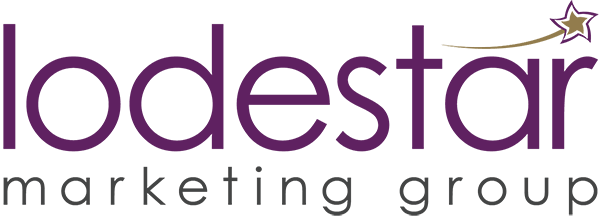
What’s Better For Your Business: Facebook Planner or A Social Media Management Platform?
What’s Better For Your Business: Facebook Planner or A Social Media Management Platform? https://www.lodestarmg.com/wp-content/uploads/2024/12/better-for-business-facebook-planner-social-media-management-platform-1024x451.png 1024 451 Lodestar Marketing Group Lodestar Marketing Group https://www.lodestarmg.com/wp-content/uploads/2024/12/better-for-business-facebook-planner-social-media-management-platform-1024x451.pngManaging social media for a business is no easy feat, especially when juggling multiple platforms, varying content strategies, and the never-ending challenge of a consistent flow of engaging content. This is where social media scheduling platforms come in, offering tools designed to streamline, enhance, and scale your social media strategy. For some, social media management platforms are critical to the strategy’s success. For simpler social approaches (just posting on Facebook or infrequent posting), native planners could be sufficient. Let’s dive into what might be the best fit for your business for whoever manages the strategy implementation.
Limitations of Facebook Planner
Facebook’s Planner is a valuable free tool for managing posts on Facebook and Instagram. However, its functionality is inherently limited to Meta-owned platforms, leaving businesses that rely on LinkedIn, Twitter (now X), Pinterest, or TikTok to search for alternative solutions. Additionally, while Planner supports scheduling and insights, it lacks advanced features such as unified analytics, automated content recycling, or multi-user access with role-based permissions—all crucial for effectively scaling a social media strategy.
For small to medium businesses (SMBs) looking to maximize their social media presence in-house, across platforms, or to save time through automation, a third-party scheduling tool can provide a more comprehensive solution.
Features Worth The Cost
Social media scheduling platforms offer a range of features that help businesses save time, improve performance, and make more informed decisions. Here are some of the most valuable functionalities these platforms provide:
- Multi-Platform Scheduling
Unlike Facebook Planner, third-party tools allow you to schedule posts for multiple platforms simultaneously, saving significant time and ensuring consistent messaging across channels. - Content Calendar Management
Many platforms feature a visual calendar where businesses can drag and drop posts, plan campaigns, and show content gaps at a glance. - Analytics
Tracking performance across different social platforms can be time-consuming. Scheduling tools combine data into unified reports, offering actionable insights into what works and what doesn’t. - Collaboration Tools
For teams, features like role-based permissions, approval workflows, and shared content libraries ensure smooth collaboration without stepping on each other’s toes. - Integration with Other Tools
Many platforms integrate with popular tools like Canva, Google Drive, and Dropbox, making content creation and management seamless. They can also connect with CRM systems, email marketing software, and analytics tools for a more holistic digital marketing strategy. - Enhanced Features for Specific Platforms
Tools like Later cater specifically to Instagram and TikTok workflows, offering features like hashtag suggestions, first comment scheduling, and story planning. These capabilities go beyond what Facebook Planner can provide.
Popular Social Media Scheduling Platforms for SMBs
Several social media scheduling platforms cater to small and medium-sized businesses, each offering unique features to fit various needs and budgets. Here’s an overview of some of the most popular options:
- Hootsuite
Hootsuite is a robust platform that supports multiple social media networks, including Facebook, Instagram, Twitter, LinkedIn, YouTube, and Pinterest. The tool allows users to schedule posts across platforms, check engagement, and generate detailed analytics. It also offers team collaboration tools, making it ideal for businesses with multiple team members managing social media. - Buffer
Known for its simplicity and user-friendly interface, Buffer is an excellent choice for small businesses. It supports scheduling, analytics, and engagement tools across multiple platforms. Buffer also includes features like Instagram-first workflows (e.g., first comment scheduling) and integration with tools like Canva, making it a great choice for visually focused brands. - Later
Later specializes in visual content scheduling and is especially popular among Instagram-first businesses. It features a drag-and-drop calendar for content planning, a media library for asset management, and robust Instagram analytics. Later also supports TikTok, Twitter, Pinterest, Facebook, and LinkedIn, making it versatile enough for SMBs with a presence across various platforms. - Sprout Social
Positioned as a premium tool, Sprout Social offers advanced analytics, in-depth reporting, and a wide range of automation features. It supports multiple platforms and is well-suited for businesses that value insights and performance metrics. While it comes with a higher price tag, the investment can be worthwhile for SMBs prioritizing data-driven decisions.
Why It’s Worth Spending on a Scheduling Platform
Investing in a social media scheduling platform might seem like an unnecessary expense when free tools are available, but the time and efficiency gained often outweigh the cost. Plus, it enables automating repetitive tasks to free up resources for more strategic initiatives. Medium-sized businesses with larger teams/more complex strategies benefit from collaboration tools that streamline workflows and prevent bottlenecks.
The right scheduling platform can transform the way you manage social media. In the fast-paced world of digital marketing, investing in the right tools is not just an option—it’s a necessity for staying competitive. If you need to update your social media strategy, let’s talk!
- Posted In:
- Business Management
- Social Media


